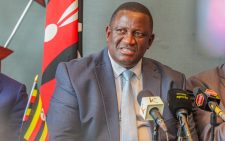Why Raila’s Saba Saba remarks faced backlash from Gen Z

The Saba Saba Day, once a rallying cry for multiparty democracy in Kenya, continues to echo with demands for justice, reform, and accountability. Yet this year, a sharp generational and ideological rift emerged as the ODM leader, once a towering figure of the pro-democracy movement, faced widespread backlash over his remarks commemorating the day.
His warm praise of a broad-based government and failure to directly address the growing crisis of police brutality struck a nerve among Kenya’s youth, who now see Saba Saba not as a day of mere remembrance but a call to renewed civic action.
For many Kenyans under 35, who form the majority of the population, Saba Saba is not about reliving past political milestones; it’s about confronting the urgent challenges of the present. Every year, they march not simply to honour the past, but to demand an end to state violence, economic exclusion, and systemic impunity.
The memory of fallen protestors, the suffering of families brutalised by security forces, and the persistent lack of accountability form the backdrop of their struggle. When the ODM leader, once revered for his opposition to the Moi dictatorship, used his Saba Saba message to commend the current government’s inclusivity without condemning the rising police excesses, it felt like a betrayal.
Many young Kenyans have grown disillusioned with establishment politics. Their mistrust isn’t rooted in ignorance of history; quite the opposite. They know the sacrifices made to achieve multiparty democracy. They revere figures who championed freedom, including the ODM leader himself. But the past cannot be used to obscure the present.
The country they see today is one where protesters are tear-gassed and shot, where economic inequality deepens, and where those in power often seem more interested in political deals than structural reform. In that light, celebrating a “broad-based” government rings hollow, especially when it appears to be more about elite accommodation than people-centred governance.
The youth-led movements that have taken shape in recent years are demanding more than nostalgia—they are demanding transformation. They question why, three decades after the first Saba Saba, the police still crack down violently on peaceful demonstrators. They want answers about the deaths of young protestors. They want justice for the victims of extrajudicial killings in informal settlements. They want their pain acknowledged, not dismissed by vague calls for unity or national cohesion.

Gen Z politricks
Critically, this generational divergence highlights a shift in what political legitimacy looks like in Kenya today. For older politicians, legitimacy often stems from history, specifically what they did during the struggle. For younger Kenyans, legitimacy comes from what you’re doing now, especially in defending civic space, advocating for the marginalised, and holding power to account. A history of struggle cannot exempt leaders from scrutiny. If anything, it raises the bar. Those who fought for freedom are expected to be its fiercest defenders, especially when it is under threat.
Raila’s comments also reignited debates around the co-optation of opposition voices. In praising the current government’s inclusivity, many perceived him as aligning too closely with the very power structures young people are resisting.
This perception has been building for some time, with ODM’s position increasingly seen as less confrontational and more conciliatory. While strategic alliances in politics are not new, the optics matter, particularly when they blur the lines between opposition and government, weakening accountability.
That backlash does not necessarily signal personal animosity; it signals a demand for relevance. Young people want leaders who speak to the realities they face: joblessness, corruption, repression, and exclusion. They want Saba Saba to reflect their struggles today, not just those of 1990. They want to know that the democracy won through blood and tears is not being quietly undone through elite pacts and political compromise.
In many ways, the ODM leader’s experience this Saba Saba underscores the need for Kenya’s political class to adapt to a new political consciousness. The youth are no longer waiting for change, they are demanding it, organising around it, and risking their lives for it.
Leaders who ignore this shift do so at their peril. Saba Saba is no longer just a date on the calendar; it’s a mirror to the nation’s conscience. And this year, it reflected a painful truth: that the struggle for justice and dignity in Kenya is far from over, and that history alone is no longer enough.















